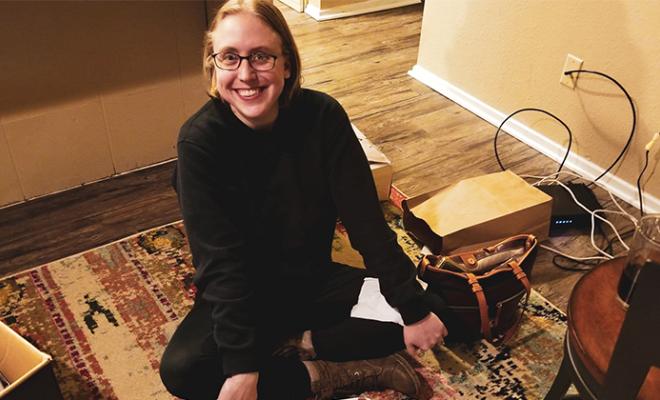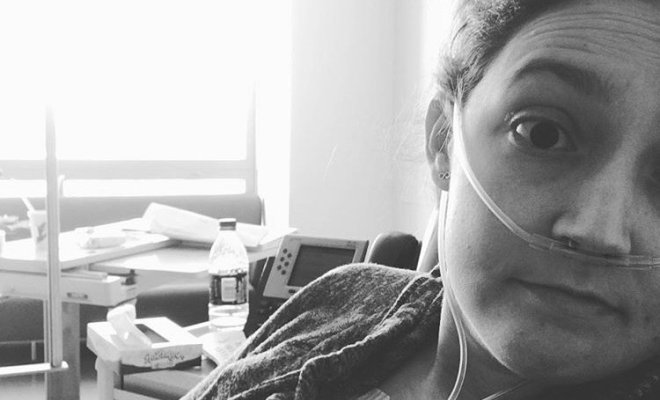Growing up with cystic fibrosis, I always had someone advocating for me. My mom or dad were always in my corner, and as I grew up and became more independent, I became my own advocate in the medical world. I learned how to tell doctors how I was feeling physically, what I believed I needed, and I was able to have incredibly healthy discussions with my medical team about the physical aspect of my disease.
Advocating for my mental health and emotional needs has been more difficult for me. I have the physical aspect down pat -- the emotional side is something I have been working on for years and it has been harder than I thought! I have a propensity for seeming optimistic and positive. And although I believe it has served me well while living with this disease, somewhere along the way I realized that others didn't think I struggled with the emotional aspects of this disease because I always appeared happy.
Truth be told, it wasn't until I was in graduate school studying psychology that I really began learning how to express my emotional needs without feeling pangs of guilt. Why did I experience guilt, you may ask? I felt guilty because I already needed so much support in day-to-day life with CF, and in my mind, I couldn't bear to place the “burden” of my emotional needs on others.
It wasn't until I realized that I had begun to suffer from symptoms of depression that I acknowledged that I needed to tell my support system. By doing so, I learned I was not burdening them in the slightest.
I needed to tell them that I needed more emotional backing in addition to the physical support they had so lovingly given to me. But, the thought of having that conversation was, to me, quite overwhelming.
My family members took what I said seriously and sympathetically, and thus began my road to becoming my own mental health advocate. There are a few things that have helped me with explaining what I needed emotionally from others that I thought I'd share with you. Maybe you won't have such a hard time expressing what you need or maybe it will be difficult, but we can't expect others to help us if we don't tell them that we need their help.
- Check in with yourself to see what you need for one task you do every day. Eventually you can expand this to multiple tasks, but at first, just choose one item. For me, I needed somebody to sympathize with me when I became overwhelmed with the amount of daily maintenance therapies I had to do, which took up the majority of my day. One way my family responded was by suggesting I do my treatments in a different part of the house so that I didn't feel so isolated, which we realized had been affecting my mental health negatively.
- Allow yourself to be emotionally done and let your family know when you're having one of those moments. Taking care of our bodies is exhausting -- the mental fortitude it requires is astounding. Being “emotionally done” doesn't mean that I get to skip a treatment, but it does allow me to express my frustration because every now and again, that last treatment of the day can be the straw that breaks the camel's back. I allow myself to pout, cry, or scream. I watch my favorite video or read a snippet of a favorite book. After I've collected myself, I accomplish the task at hand, whether it is making that phone call to the doctor or doing what feels like the 100th treatment for that day.
- Seek counseling from a third party. I have been seeing a counselor off and on for 20 years. And each time has been because I was coping with a different aspect of CF. Everyone's experience with this disease is incredibly unique and having an outsider's objective point of view can be really helpful. Not only has a mental health practitioner helped me with coping with the demands of CF, but they also have helped me with verbalizing my needs more coherently!
I've learned that recognizing that I have emotional needs as a CF patient does not make me weak. By recognizing my emotional needs, expressing them to my family, and allowing them to meet those needs, it has made coping with this illness so much more tolerable. We are only human, and while we are astonishingly strong and resilient, it is okay to ask for help. Most people want to help -- we just need to be able to express how they can help. And as you learn to express your emotional needs, they can learn how to meet those needs.
Join the conversation on Facebook.





